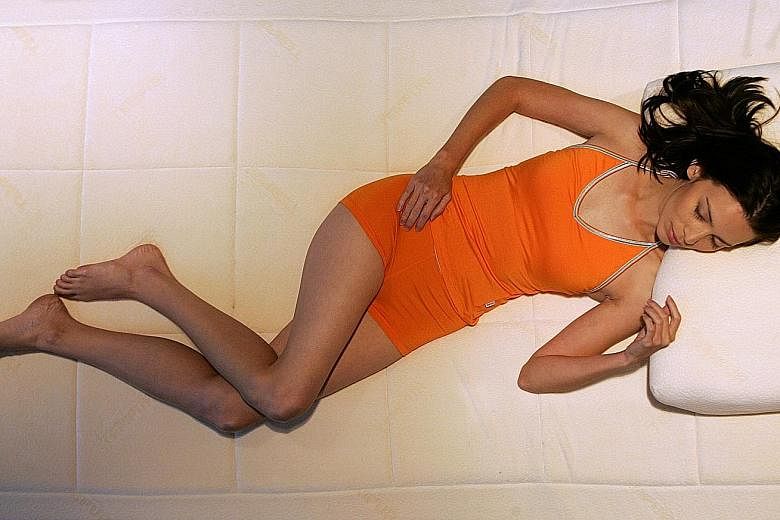NEW YORK • Among the many disruptions this year, insomnia may rank high on the list.
Data on how the coronavirus pandemic has affected sleep is limited because biomedical research can take years to shake out and most studies to date have been small. But evidence from China and Europe suggests that prolonged confinement is altering sleep in adults as well as children.
The first step towards better sleep is to figure out what is triggering your insomnia. Once you do that, you can take action to prevent it from becoming chronic - a clinical sleep disorder that should be treated by a sleep-medicine specialist.
Stressful and upsetting experiences like the death of a loved one or the loss of a job - two widespread realities of Covid-19 - are known psychological triggers for insomnia.
If your insomnia is tied to such an event, the quickest way to get help is to call your doctor. One thing many doctors suggest is cognitive behavioural therapy, or CBT.
CBT, or CBT-I for insomnia, is a standard treatment for both acute and chronic insomnia and includes a variety of techniques.
Meditation, mindfulness and muscle relaxation can help people whose sleep problems are tied to a stressful event.
CBT for insomnia typically lasts from six to eight weeks and "works for two-thirds to three-quarters of patients", said psychologist Jennifer Martin.
Shifts in habits and routine - including many of the blurred lines between work and home that have resulted from the pandemic - can also lead to insomnia.
Lack of exercise and structure, for example, can put both adults and children at risk.
It may be comfortable and cosy to stay in your pyjamas all day while working or attending school remotely, but CBT experts advise getting dressed every morning.
And do not stay in bed all day. You should separate your sleep space and habits as much as possible from your waking space and habits.
If you cannot identify a psychological trigger for your insomnia, it may be the result of something physical. An easy target is your favourite screen - including the television.
"There is a very clear inverse relationship between screen time and sleep," said Dr Craig Canapari, a paediatric sleep physician and director of the Yale Paediatric Sleep Centre.
Screens are bad for sleep as they emit blue light, which can suppress the body's natural secretion of melatonin, a hormone that regulates the sleep-wake cycle.
For adults who cannot resist their phones or other screens at night, adjust the display setting to "night shift", which changes the colours on the screen to a warmer spectrum.
Experts recommend exposing yourself to as much daylight as you can and dimming the lights in your home in the evening as part of healthy sleep hygiene.
NYTIMES

